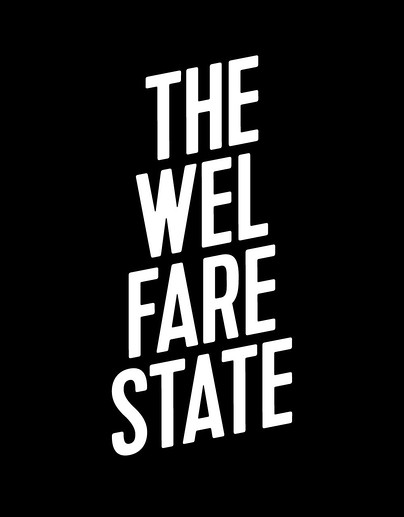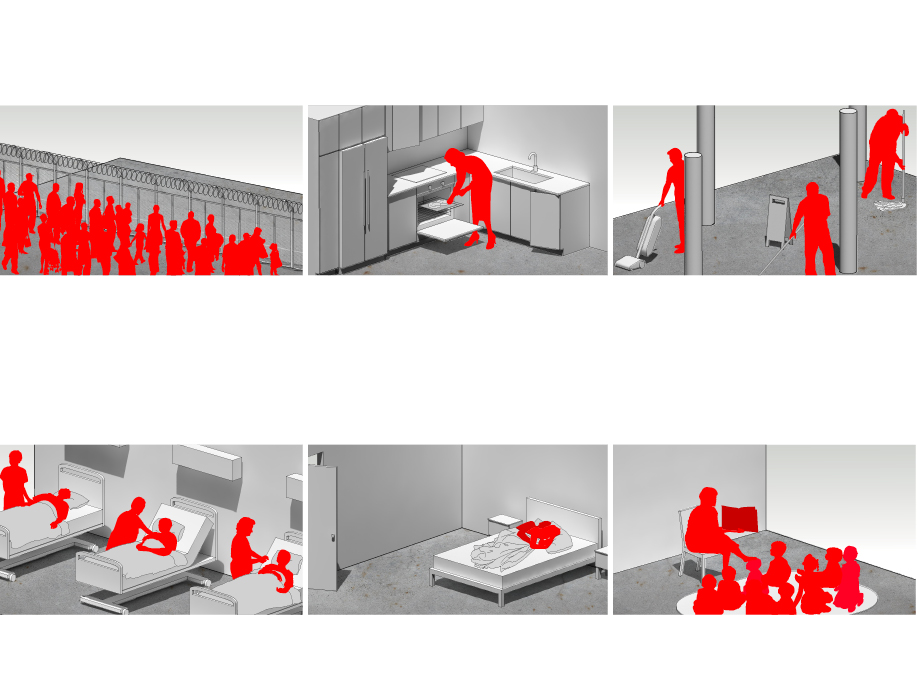Anders Kreuger (ed.): The Welfare State (2015)
Filed under catalogue | Tags: · art, labour, politics, welfare state

“The welfare state is an abstract notion. But also very concrete. Political, but also bureaucratic. What does it have to do with art?
The welfare state operates with regulations, rights and obligations that apply to everyone in the same way, requiring individuals to identify themselves as members of society first and foremost. In this sense, the welfare state is the antithesis of art. Many artists support the welfare state in both theory and practice, and they are fascinated by rules as such, but they have little interest in following rules formulated by others than themselves..
The welfare state is an emancipatory political project, although it was first invented as a way of keeping class struggle and revolution at bay. It is hard to disassociate the European welfare state from the darker elements of recent history, such as militarism, colonialism and the degradation of the natural environment. Yet the welfare state, as a model for social cohesion and political stability, is now gaining ground in new parts of the world, notably in East Asia.
The exhibition The Welfare State does not look back with nostalgia at the welfare state in its ‘classical’ form as a utopian blueprint for an egalitarian (and homogenous) society in postwar Western Europe. It does not invite artists to ‘illustrate’ political and social engagement. But it does ask some fundamental questions. What is the ‘imaginary’ of the welfare state? Does it have a ‘form’? Can it be ‘shown’?”
Contributions by Stephen Willats, Josef Dabernig, Róza El-Hassan, Francisco Camacho Herrera, Anne-Mie Van Kerckhoven, Artūras Raila, Kajsa Dahlberg, and Donna Kukama.
With an introduction by Anders Kreuger
Publisher M HKA, Antwerp, 2015
ISBN 9789072828521
139 pages
PDF (11 MB, updated on 2020-10-19)
EPUB (22 MB, updated on 2020-10-19)
Trebor Scholz: Platform Cooperativism: Challenging the Corporate Sharing Economy (2016) [EN, DE]
Filed under brochure | Tags: · capitalism, collaboration, economics, internet, labour, platform cooperativism, sharing

“The “sharing economy” wasn’t supposed to be this way. Aided by the tiny computers most of us carry with us all day, every day, we would be free from the burdens of ownership and making money in our spare time by renting out our unused possessions. The vison was—or at least appeared to be—an idealistic one. Even before they enter kindergarten, every child learns the value of sharing, and here were the beneficent forces of Silicon Valley bringing us innovative new tools to strengthen our communities, disrupt outdated ways of doing business, and maybe even reduce our carbon footprints.
The reality turned out to be a little different. Sure, Uber and its ilk offer remarkable convenience and a nearly magical user experience, but their innovation lies just as much in evading regulations as in developing new technology. Behind the apps lies an army of contract workers without the protections offered to ordinary employees, much less the backing of a union. This new economy is not really about sharing at all. Rather, as Trebor Scholz argues in this study, it is an on-demand service economy that is spreading market relations deeper into our lives.
With these new middlemen sucking profits out of previously un-monetized interactions, creating new forms of hyper-exploitation, and spreading precarity throughout the workforce, what can we do? Scholz insists that we need not just resistance but a positive alternative. He calls this alternative “platform cooperativism,” which encompasses new ownership models for the Internet. Platform cooperativism insists that we’ll only be able to address the myriad ills of the sharing economy—that is to say platform capitalism—by changing ownership, establishing democratic governance, and reinvigorating solidarity. In this paper, Scholz breathes life into this idea by describing both actually existing and possible examples of platform co-ops, outlining basic principles for fairly operating labor platforms on the Internet, and suggesting next steps.”
Publisher Rosa Luxemburg Stiftung, New York Office, Jan 2016
27 pages
Platform Cooperativism (English, 2016, PDF, 6 MB)
Plattform-Kooperativismus (German, 2016, HTML, added on 2016-6-19)
Viewpoint Magazine, 5: Social Reproduction (2015)
Filed under magazine | Tags: · capitalism, labour, life, political economy, politics, production, society, work

“Today, amidst a changed political and class landscape, strategy should take precedence over fidelity to the received canon. The activities of social reproduction remain the field of powerful class antagonisms.”
The issue includes 30 articles.
Edited by Asad Haider and Salar Mohandesi
Published November 2015
Creative Commons BY-NC License

